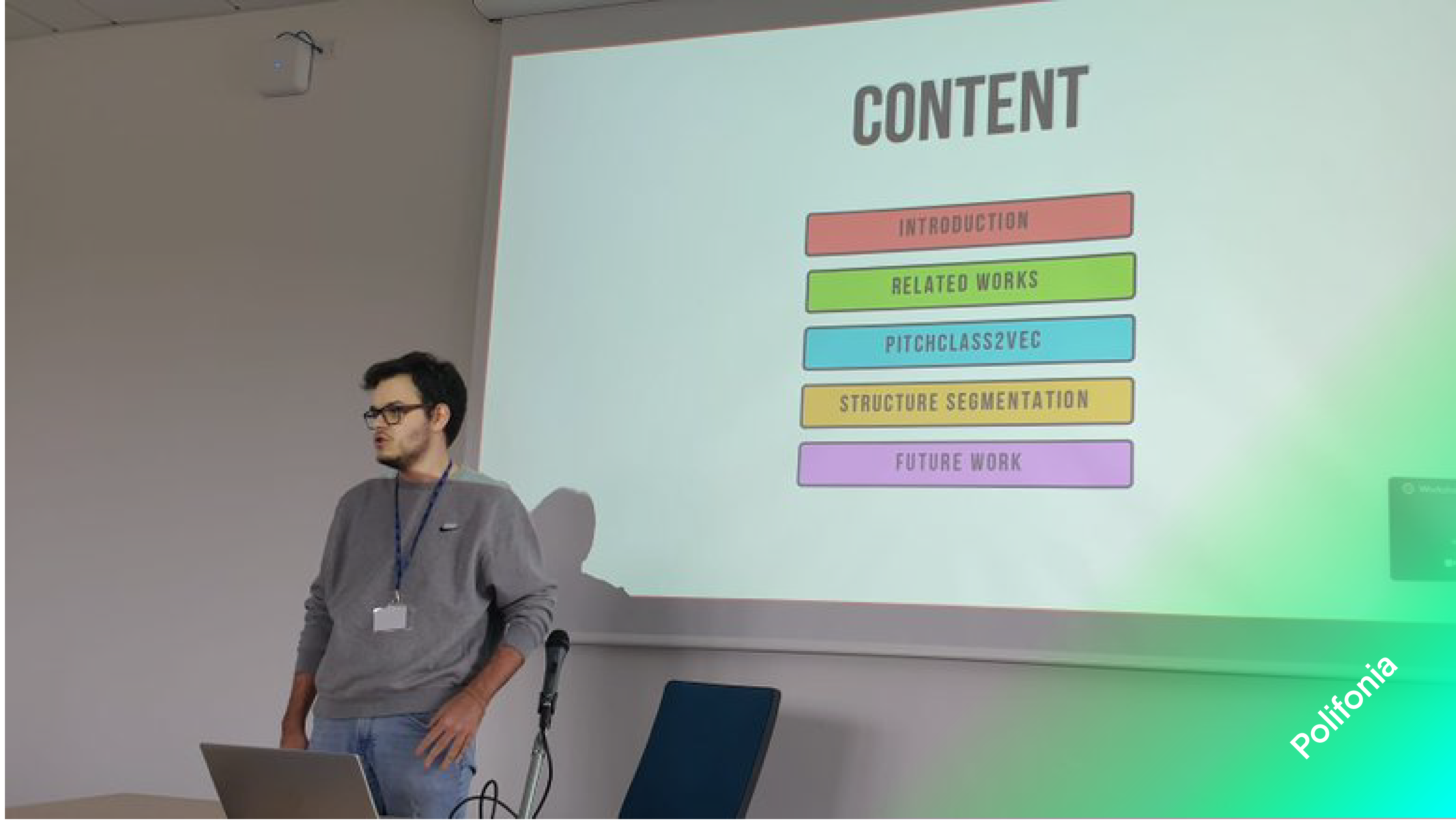#Recap: Nicolas Lazzari on a new approach to automatic music segmentation: Pitchclass2vec
Earlier in December, Polifonia’s team from Bologna presented a novel music segmentation method called Pitchclass2vec at the 21st International Conference of the Italian Association for Artificial Intelligence (AIxIA 2022). Master student Nicolas Lazzari was asked to present the experiments that were part of this research.

Earlier in December, Polifonia’s team from Bologna presented a novel music segmentation method called Pitchclass2vec at the 21st International Conference of the Italian Association for Artificial Intelligence (AIxIA 2022). Master student Nicolas Lazzari was asked to present the experiments that were part of this research.
“When Valentina told me we were going to present some of the experiments I’ve been doing as part of my master thesis I was thrilled.” says Lazzari. “Getting in touch with the AI community is something I’ve always looked forward to doing,” he continues. Members of this AI community signed up to be part of the First CREAI Workshop on Artificial Intelligence and Creativity which was held in conjunction with AIxIA 2022. There, Lazzari, and his supervising researchers Andrea Poltronieri and Valentina Presutti presented their research paper ‘’Pitchclass2vec: Symbolic Music Structure Segmentation with Chord Embeddings.’’
“Pitchclass2vec, is the algorithm that I developed with Valentina Presutti and Andrea Poltronieri.” The paper presents a novel idea on how to encode chords using a method that draws from the recent advances in the natural processing field. This was tested on a music structure segmentation task and obtained very good performances, outperforming the current state of the art in the field. “Our algorithm makes use of chords only, as opposed to the most common approaches that use audio tracks instead. This is a somewhat harder way of tackling music related tasks, especially on those that are intrinsically bound to the rhythm of a tune, such as the structure segmentation task,” Lazzari explains. The team is currently working on expanding the method and applying it to other tasks as well, since it is able to correctly encapsulate the underlying relation between chords in a musical piece, and is able to exploit that knowledge to automatically perform tricky tasks.
It was a big day for master student Lazzari “Even though we did solid work, I was still a bit scared to present it. Being in front of so many great researchers that want to hear about your work, with years of experience in the same field, isn’t something that happens every day. Let alone when some of them pioneered the application of artificial intelligence into the music field.” Though, Lazzari couldn’t have had a better crowd to witness the results of his hard work in his master studies: ”everyone seemed to enjoy it and I was glad to answer lots of interesting questions from the audience. Being able to share my work with other researchers is something that I truly enjoyed an I wish I’ll be able to do it again as soon as possible!”










